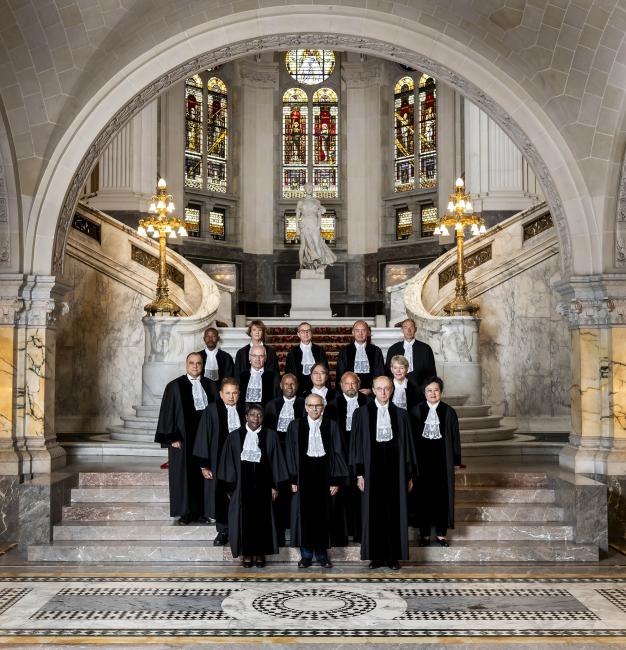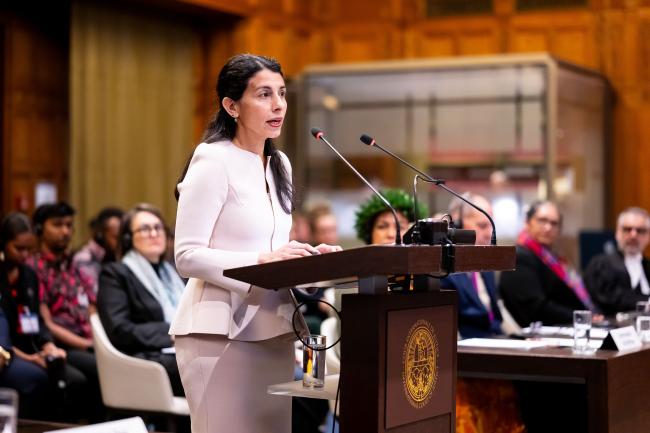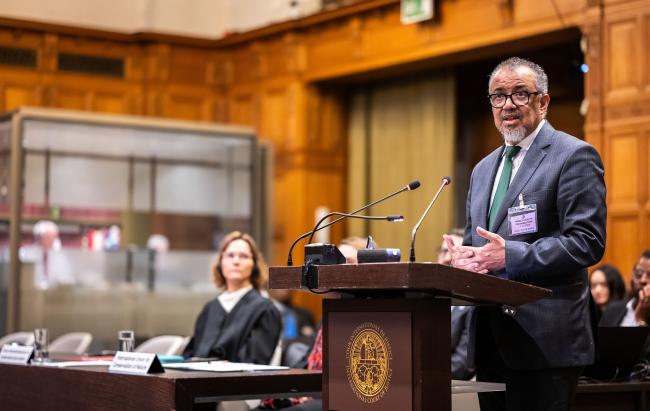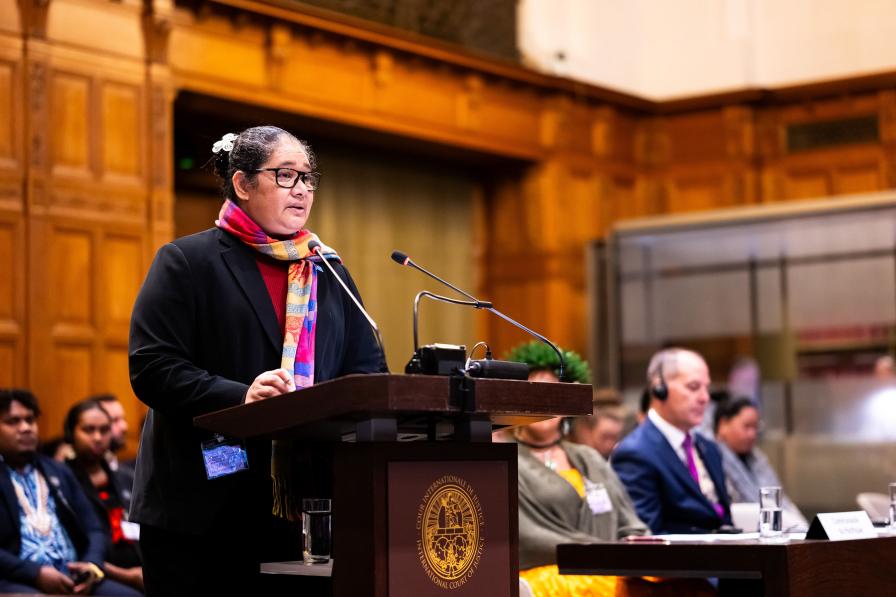The last day of the hearings consisted of statements by international organizations. They did not disappoint. Most advanced forceful arguments and several gave youth representatives a platform to speak.
The Commission of Small Island States on Climate Change and International Law (COSIS) argued that best available science determines the degree of due diligence necessary for States to meet their obligations. They, along with the International Union for Conservation of Nature (IUCN), cited the findings of the Intergovernmental Panel on Climate Change (IPCC) on what is needed to stay in line with the Paris Agreement’s objective to limit the global average temperature increase to 1.5°C above pre-industrial levels with no or limited overshoot:
- reduce global greenhouse gas (GHG) emissions by 43% below 2019 levels by 2030;
- reduce GHG emissions by 84% by 2050; and
- to this end, transition away from fossil fuels.
The World Health Organization recounted the IPCC’s insights on the impacts of climate change on health, for example with regard to increases in cardiovascular diseases related to heat stress, respiratory illnesses related to air pollution, and infectious vector-borne diseases related to range expansions of mosquitoes, among others. They emphasized the costs of inaction outweigh the costs of action.
COSIS, the Organisation of African, Caribbean, and Pacific States, and IUCN rebutted the idea that complying with the Paris Agreement is sufficient for States to fulfil all their climate obligations, especially considering the inadequacy of current nationally determined contributions (NDCs). COSIS noted that while States have consented to protecting the environment, guided by best available science, they “presumably did not consent to mass extinction and the collapse of civilizations,” which would be the reality of 3°C of warming resulting from current NDCs.
A youth representative of Pacific Islands Students Fighting Climate Change recounted youth’s effort to achieve the seemingly impossible: bring climate change to the world’s highest Court and present their stories. Pointing to the Peoples’ Petition, they urged the Court to help course-correct, hold those responsible accountable, and end “emissions impunity.”
The judges invited States and admitted organizations to respond, by Friday 20 December, to questions on:
- what, if any, specific obligations arise under international law for those States within whose jurisdictions fossil fuels are produced;
- whether the object and purpose of the Paris Agreement and the framework of the climate regime more generally have any effect on the interpretation of Article 4 of the Paris Agreement (on mitigation, including the preparation of NDCs) and if so, what effect;
- the legal content of the right to a healthy environment and its relation to other human rights relevant to the advisory opinion; and
- the significance of some States’ declaration, upon ratification of the UNFCCC and the Paris Agreement, that they do not renounce rights under State responsibility and that no provision in the treaties can be interpreted as derogating from principles of general international law or any claims or rights concerning compensation and liability due to the adverse effects of climate change.
The Court is expected to deliver its advisory opinion in open court sometime in 2025.
To receive free coverage of global environmental events delivered to your inbox, subscribe to the ENB Update newsletter.
Select Images

Cristelle Pratt, Organisation of African, Caribbean and Pacific States (photo by ICJ/CIJ | Frank van Beek)

Cheryl Eloise Bazard, Organisation of African, Caribbean and Pacific States (photo by ICJ/CIJ | Frank van Beek)

Pierre-Marie Dupuy, Organisation of African, Caribbean and Pacific States (photo by ICJ/CIJ | Frank van Beek)














